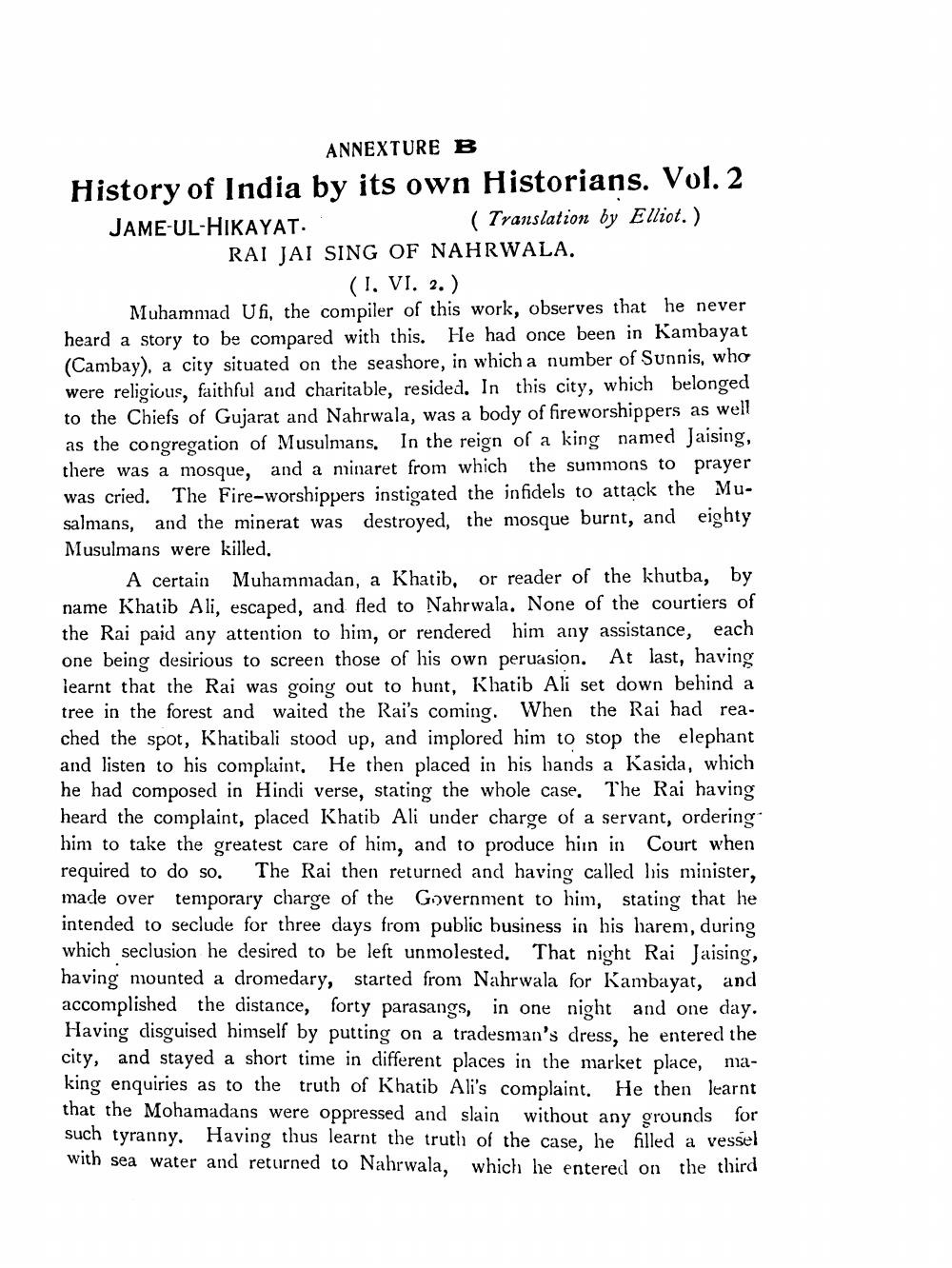________________
ANNEXTURE B History of India by its own Historians. Vol. 2 JAME-UL-HIKAYAT.
( Translation by Elliot.) RAI JAI SING OF NAHRWALA.
(1. VI. 2.) Muhammad Ufi, the compiler of this work, observes that he never heard a story to be compared with this. He had once been in Kambayat (Cambay), a city situated on the seashore, in which a number of Sunnis, who were religious, faithful and charitable, resided. In this city, which belonged to the Chiefs of Gujarat and Nahrwala, was a body of fireworshippers as well as the congregation of Musulmans. In the reign of a king named Jaising, there was a mosque, and a minaret from which the summons to prayer was cried. The Fire-worshippers instigated the infidels to attack the Musalmans, and the minerat was destroyed, the mosque burnt, and eighty Musulmans were killed.
A certain Muhammadan, a Khatib, or reader of the khutba, by name Khatib Ali, escaped, and fled to Nahrwala. None of the courtiers of the Rai paid any attention to him, or rendered him any assistance, each one being desirious to screen those of his own peruasion. At last, having learnt that the Rai was going out to hunt, Khatib Ali set down behind a tree in the forest and waited the Rai's coming. When the Rai had reached the spot, Khatibali stood up, and implored him to stop the elephant and listen to his complaint. He then placed in his bands a Kasida, which he had composed in Hindi verse, stating the whole case. The Rai having heard the complaint, placed Khatib Ali under charge of a servant, ordering him to take the greatest care of him, and to produce himn in Court when required to do so. The Rai then returned and having called his minister, made over temporary charge of the Government to him, stating that he intended to seclude for three days from public business in his harem, during which seclusion he desired to be left unmolested. That night Rai Jaising, having mounted a dromedary, started from Nahrwala for Kambayat, and accomplished the distance, forty parasangs, in one night and one day. Having disguised himself by putting on a tradesman's dress, he entered the city, and stayed a short time in different places in the market place, making enquiries as to the truth of Khatib Ali's complaint. He then learnt that the Mohamadans were oppressed and slain without any grounds for such tyranny. Having thus learnt the truth of the case, he filled a vessel with sea water and returned to Nahrwala, which he entered on the third




